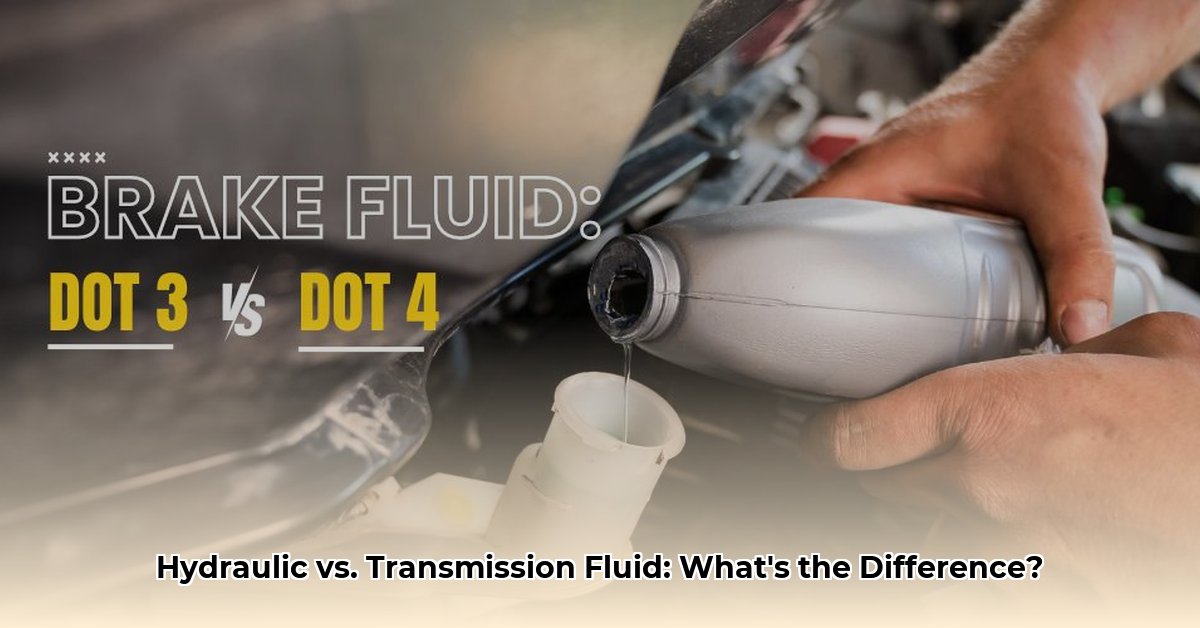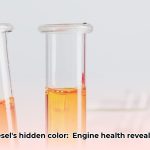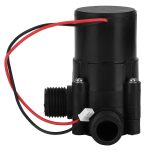You’re at the auto parts store, staring at a wall of fluids. You think, “Hydraulic fluid, transmission fluid…they’re both oily, right? Can I just use either one?” Stop right there. While they might look similar, using the wrong fluid is like putting diesel in your gasoline car—a recipe for disaster. This guide explains why.
Understanding Hydraulic Fluid
Hydraulic fluid is the muscle behind countless systems, from your car’s power steering to heavy machinery like excavators. Its job is to transmit power, and it does this incredibly well due to its near incompressibility. When pressure is applied, the force is transferred directly and powerfully, making heavy lifting possible. But it’s not just about brute force; hydraulic fluid also lubricates, cools, and seals the system’s components, preventing wear.
Types of Hydraulic Fluid
Most hydraulic fluids start with a mineral oil base, but there are also synthetic and water-based versions for specialized applications. Each is carefully engineered with specific additives to enhance performance and protection. These additives might include:
- Anti-wear agents: These create a protective film on metal surfaces, reducing friction and extending component life.
- Anti-corrosion additives: These protect against rust and corrosion, especially important in systems exposed to moisture.
- Viscosity modifiers: These help maintain the fluid’s ideal thickness across a wide range of temperatures, ensuring smooth operation in both scorching heat and freezing cold.
Decoding Transmission Fluid
Transmission fluid, while also a lubricant, has a different mission: ensuring smooth and efficient gear changes in your vehicle’s transmission. It reduces friction between gears, cools the transmission, and even helps with the hydraulic operation of clutches and torque converters.
Transmission Fluid Varieties
Just like hydraulic fluid, there isn’t a one-size-fits-all transmission fluid. The type you need depends on your transmission:
- Automatic Transmission Fluid (ATF): Designed for the complex hydraulic systems of automatic transmissions. Examples include Dexron, Mercon, and more specialized fluids for specific makes and models.
- Manual Transmission Fluid: Formulated for manual gearboxes, typically with different viscosity and additive packages than ATF.
- Continuously Variable Transmission (CVT) Fluid: Specifically engineered for the unique demands of CVT systems, which use belts and pulleys instead of traditional gears.
Mythbusting: Why They’re Not Interchangeable
Let’s tackle some common misconceptions head-on:
Myth 1: Viscosity Doesn’t Matter
Reality: Viscosity—the fluid’s resistance to flow—is crucial. Using the wrong viscosity can cripple your system. Too thick, and it won’t flow properly, starving components of lubrication. Too thin, and it won’t maintain the necessary pressure or film strength, leading to wear and potential leaks.
Myth 2: All Additives Are the Same
Reality: Additives are like specialized tools. Transmission fluid, for instance, relies heavily on friction modifiers for smooth shifting. Hydraulic fluid often prioritizes anti-wear and extreme pressure additives. Using the wrong fluid means the system won’t have the necessary protection, leading to premature wear, corrosion, and potential failure.
Myth 3: Any Fluid Will Do
Reality: Using the wrong fluid is a gamble you shouldn’t take. Think of it as using the wrong medication—it might not kill you immediately, but it certainly won’t help, and it could cause long-term damage.
The Fallout of Fluid Faux Pas
What happens when you use the wrong fluid?
Hydraulic Fluid in a Transmission: Expect rough shifting, slipping clutches, overheating, and ultimately, transmission failure. The thicker fluid can clog passages, preventing proper lubrication and cooling.
Transmission Fluid in a Hydraulic System: You might experience sluggish response, leaks, and damage to pumps and valves due to the thinner fluid’s inability to maintain pressure and provide adequate lubrication.
Picking the Perfect Potion: Your Fluid Guide
- Consult Your Owner’s Manual: This is your vehicle’s bible. It specifies the correct fluids for your make and model.
- Check the Dipstick/Reservoir: Many dipsticks or reservoir caps have the recommended fluid type printed on them.
- Seek Expert Advice: If in doubt, consult a qualified mechanic. They can provide tailored recommendations based on your vehicle’s specific needs.
Environmental Impact and Future Trends
Choosing the right fluid isn’t just about your vehicle’s health; it’s also about environmental responsibility. Biodegradable fluids are becoming more common, reducing the impact on our planet. With the rise of electric and hybrid vehicles, fluid technology is also evolving. New fluids optimized for these advanced systems are continually being developed.
FAQ: Addressing Your Fluid Queries
Q: Can I use Dexron III as hydraulic fluid?
A: Absolutely not. Dexron III is an ATF formulated for automatic transmissions. Its additive package is completely different from hydraulic fluid and won’t provide the necessary protection in a hydraulic system.
Q: My power steering fluid is low. Can I top it off with transmission fluid?
A: No. Power steering systems typically use hydraulic fluid. Using transmission fluid can damage the system’s seals and components.
Disclaimer
This information is for general knowledge and should not be considered professional advice. Always consult your owner’s manual and a qualified mechanic for specific recommendations and maintenance procedures.
| Feature | Hydraulic Fluid | Transmission Fluid |
|---|---|---|
| Primary Function | Power transmission in machinery | Lubrication and power transfer in transmissions |
| Viscosity | Higher, stable across a wide temperature range | Lower, optimized for transmission operation |
| Key Additives | Anti-wear, anti-corrosion, viscosity modifiers | Friction modifiers, detergents, dispersants, antioxidants |
| Interchangeability | No | No |
Remember, ongoing research suggests our understanding of fluids is constantly evolving. Staying informed ensures you’re providing the best possible care for your vehicle.
- Portable Hydroelectric Generators Harness Nature for Off-Grid Power - February 21, 2026
- Generate Free Electricity for Home From Renewable Sources - February 18, 2026
- Micro-Hydro Offers Cheapest Home Electricity if You Have a Stream - February 17, 2026
















